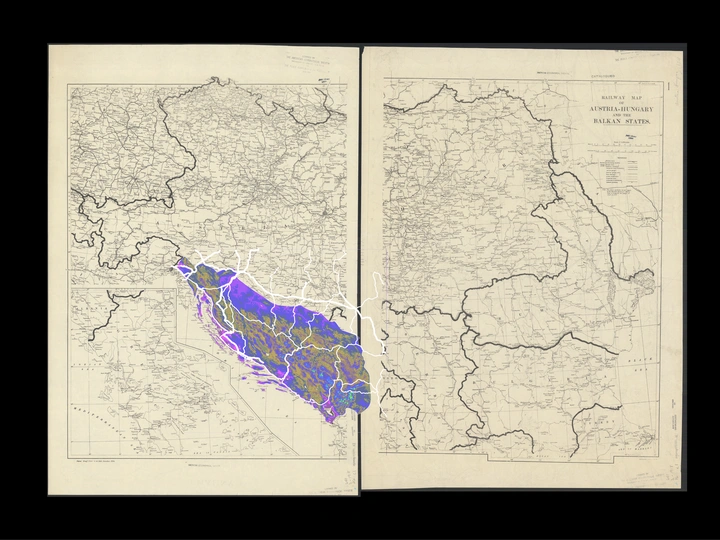Exhausted Earths—Metabolic Politics of Borderlands

Emma Kaufmann LaDuc
Alfonse Chiu is a researcher and curator. Their research interests lie broadly in interrogating imaginaries of capital and ideologies as shaped by media infrastructures and networked economies, so as to contemplate possible futures for bodies, societies, and the environment. They are the founder of the Centre for Urban Mythologies (CUM), a critical platform exploring the tropes and narratives of the urban condition to propose larger situated critiques of capitalism and Anthropocene positioned from the Global South. Their texts have been commissioned and published internationally by institutions such as the Asian Film Archive, Berlinale, Sharjah Architecture Triennial, and Nieuwe Instituut. They have participated in residencies at Medialab Matadero, PACT Zollverein, and Museum of Contemporary Art Zagreb. They were the Fall 2021 e-flux journal fellow, the 2021/22 DECK Associate Curator, and a winner of the Young Climate Prize 2023, organised by The World Around. They are presently a master’s candidate in environmental design at the Yale School of Architecture.
Emma Kaufmann LaDuc is an architect and landscape architect currently working as a researcher at the Chair of Affective Architectures, ETH Zürich. Her research seeks to both pluralize and localise spatial practice, thinking through resilient systems and acting through collaborative interventions. She has hosted workshops at the Universität für angewandte Kunst, Vienna Design Week, and the international conference ‘Archipelago: Architectures of the Multiverse’, and has given talks at the University of Oxford and Free University of Bozen-Bolzano. Since 2022, she runs an experimental unit on landscape at the AA Summer School in London, as well as collaborates with the interdisciplinary collective La Rivoluzione delle Seppie, where she participated in “Belmondo Tracks”, exhibited at the Venice Biennale for Architecture 2023.
Ours is a world of systems, networks, and flows—across spaces, between bodies, above and under surfaces. Operating within the energetic regimes that have been sculpted by forces of capital, their ideological processes, and their material articulations, the movements which characterise the complex complicities of our contemporary conditions are those of a metabolic nature. Interdependencies abound, as do transactions, mutations, and agglomerations, between contiguous territories, landscapes that behave not in separation but in tandem: mountain ranges, watersheds, and forests know no borders except their own limits.
Taking as the locus of its inquiry the Dinaric Alps, ‘Exhausted Earths’ is a multi-media investigation into the dynamics of exhaustion in the Balkans as it pertains to bodies and lands, through material processes of extraction, depopulation, and developmental pressure that have rendered the region increasingly inhospitable. Within a metabolic framework, exhaustion is a state of deficit and imbalance: an entropic shift that is hard, if not impossible, to remediate. From ore mining to exploitative guest-worker programme, the relationship between exhaustion and the Balkans reveals an intimacy between people and (un/built) environments that has profound architectural and spatial implications—a choreography of labour and capital that needs dramaturgy.
Materially, we envision ‘Exhausted Earths’ to manifest as an editorial and performative intervention. We seek to make spaces of conviviality and gathering that allows for polyphony to exist. As emerging spatial practitioners and theorists, we propose ‘Exhausted Earths’ to be a toolkit, a tutorial, a glossary, a recipe book, a plan, and an episode in exploring the political ecology of exhaustion. We invite sensuous readings, erotic conspiracies, and earnest questions, amongst many possible methods of inquiry, that highlight the impossibility of orthodoxy and disciplinary monogamy in the age of entanglements.